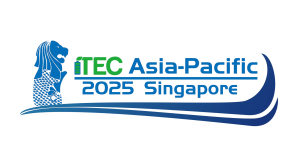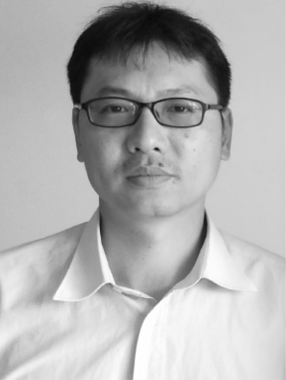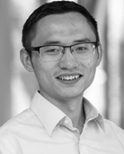
Special Session 8
SS08. Advanced Power Converters for Industrial, Green Energy and Transportation Applications

Chair: Ching-Ming Lai
Affiliate: National Chung Hsing University
Title: Distinguished Professor
Email: pecmlai@gmail.com

Co-Chair: Hongjie Wang
Affiliate: Utah State University
Title: Assistant Professor
Email: hongjie.wang@usu.edu

Co-Chair: Guiyi Dong
Affiliate: Toyota Motor Corporation, Frontier Research Center
Title: Research Engineer
Email: guiyi_dong@mail.toyota.co.jp ; 205w902w@gsuite.kobe-u.ac.jp
Abstract
The development of advanced power conversion technologies is central to the ongoing transformation of energy systems across industrial, renewable, and transportation sectors. As global efforts intensify toward achieving carbon neutrality and sustainable energy integration, power converters have emerged as a vital enabler of high-efficiency energy management and system optimization. From electric vehicles (EVs) and electric aircraft to smart factories and renewable energy installations, power converters play a key role in ensuring reliable, compact, and efficient operation across a wide range of applications. Recent breakthroughs in wide-bandgap (WBG) semiconductor devices—such as silicon carbide (SiC) and gallium nitride (GaN)—have further accelerated innovation in this field. These technologies offer superior efficiency, higher power density, and enhanced thermal performance, making them increasingly indispensable in next-generation energy and industrial systems. Their adoption is transforming not only electrified transportation, but also grid-connected renewable energy systems, DC microgrids, industrial automation, and energy storage applications.
This Special Issue seeks to highlight the latest research and development in advanced power converters across the domains of industrial electronics, green energy systems, and transportation technologies. We welcome original research articles, review papers, and case studies that address innovative converter topologies, control strategies, system integration techniques, reliability improvements, and application-specific challenges. Contributions that showcase interdisciplinary approaches or real-world deployments are especially encouraged.
Biography
Ching-Ming Lai (Senior Member, IEEE) received the Ph.D. degree in electrical engineering from the National Tsing Hua University, Taiwan, in 2010. Since 2019, he has been with the Department of Electrical Engineering, National Chung Hsing University (NCHU), Taiwan. He is currently a Professor and the Director of the Intelligent Electric Vehicle and Green Energy Center, NCHU. In 2023, he was a Research Professor with Kobe University, Kobe, Japan. His research interests include system integration, electric vehicles, power electronics, green energy technologies, and intelligent transportation. Dr. Lai was the recipient of the 2008 Young Authors Award for Practical Application from the Society of Instrument and Control Engineers, Japan, Best Paper Award at the 2013 IEEE International Conference on Power Electronics and Drive Systems, Technical Award Paper of 2024 IEEE International Conference on Power Electronics Systems and Applications. He received Dr. Shechtman Youth Researcher Award from Taipei Tech in 2018, Outstanding Youth Electrical Engineer Award from the Chinese Institute of Electrical Engineering in 2018, Outstanding Education Achievement Award from SAE-Taipei in 2019, Outstanding Youth Control Engineer Award from the Chinese Automatic Control Society in 2019, Outstanding Youth Engineer Award from the Chinese Institute of Engineers-Taichung Chapter in 2020, Ta-You Wu Memorial Award from National Science and Technology Council, R.O.C in 2023, Outstanding Young Persons from Taiwan Association of Systems Science and Engineering in 2024, and the Outstanding Engineering Professor from Chinese Institute of Engineers-Taichung Chapter in 2024. In addition, according to Elsevier, he was listed in the World’s Top 2% of Scientists (Field: Energy), since 2021. Since 2024, he serves as the Founder and Chair of the IEEE Systems Council Taipei Chapter. He has been the Editor of IEEE TRANSACTIONS ON VEHICULAR TECHNOLOGY, since 2017, an Associate Editor for IEEE ACCESS, since 2021, and an Associate Editor for IEEE SYSTEMS JOURNAL, since 2025. He is Fellow of IET and Fellow of the Australian Institute of Energy.
Hongjie Wang (Senior Member, IEEE) received the B.S. degree in electrical engineering from the University of Shanghai for Science and Technology, Shanghai, China, in 2009, the M.S. degree in electrical engineering from Shanghai Jiaotong University, Shanghai, in 2012, and the Ph.D. degree in electrical engineering from Utah State University (USU), Logan, UT, USA, in 2018. From 2012 to 2014, he was a Senior Researcher with the China Electric Power Research Institute, Beijing, China, working on intelligent high-voltage equipment development and standardization. After graduating in 2018, he was a Post-Doctoral Researcher with USU for one year, where he has been an Assistant Professor with the Department of Electrical and Computer Engineering since 2019. At USU, he serves as the Co-Director of the USU’s Power Electronics Laboratory. He Has Coauthored More Than 50 Peer-Reviewed Publications And Six Issued Patents. His Current Research Interests Include Dc Power Distribution, Analysis, Design, And Control Of Resonant Converters, Extreme Fast Charging, Grid Interface Power Converters, Health Monitoring And Diagnosis Of Power Converters, Second-Life Battery And Battery Management Systems, And Dynamic Wireless Power Transfer For Transportation Electrification Applications. Dr. Wang was a recipient of the National Science Foundation Career Award in 2023. He was also a recipient of the 2022 Researcher of the Year Award and the 2023 Outstanding Advisor of the Year Award from the Department of Electrical and Computer Engineering, USU, and the 2023 Undergraduate Research Mentor of the Year Award from the College of Engineering, USU.
Guiyi Dong (Graduate Student Member, IEEE) was born in Shandong, China, in 1996. He received the B.S. degree from the School of Information and Electrical Engineering, Shandong Jianzhu University, Shandong, China, and the M.S. degree from the Graduate School of Science and Technology, Gunma University, Maebashi, Japan. He received the Ph.D. degree in engineering from the Graduate School of Maritime Sciences, Kobe University, Kobe, Japan.
He is currently with Toyota Motor Corporation, Toyota Frontier Research Center, Japan, where he is engaged in research on power electronics and drive technologies for robotics applications. His research interests include resonant converters, bidirectional DC–DC converters, bidirectional wireless power transfer (WPT) systems for vehicle-to-home (V2H) applications, and the development of high-frequency inverters for WPT and induction heating (IH) systems.